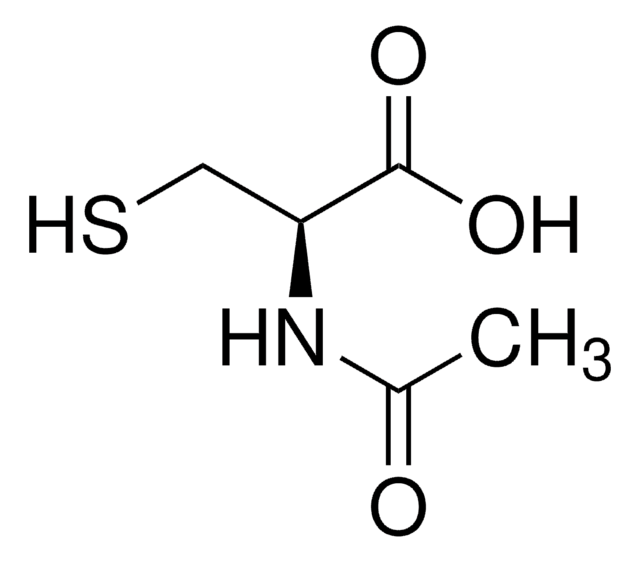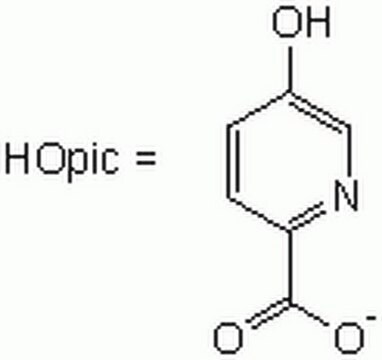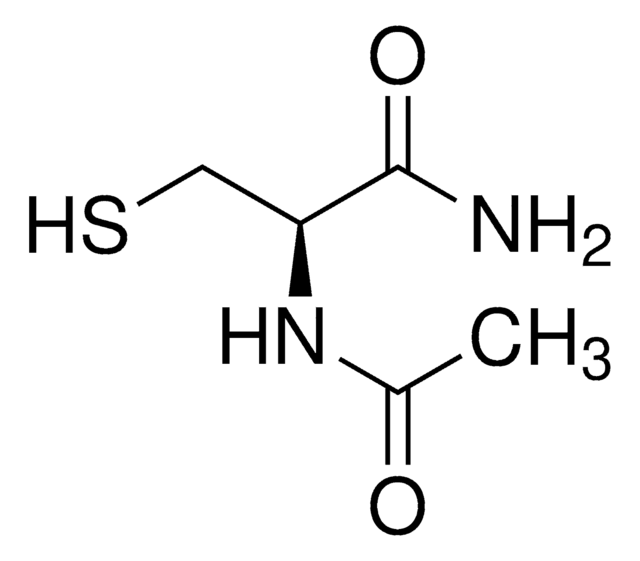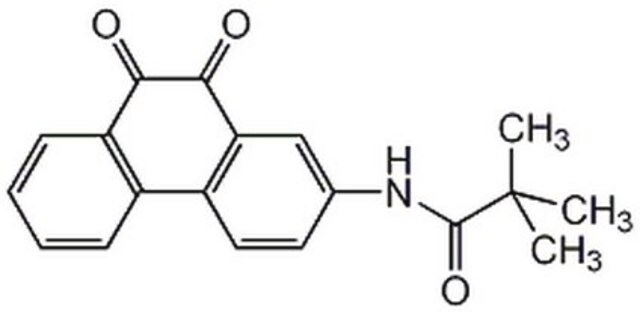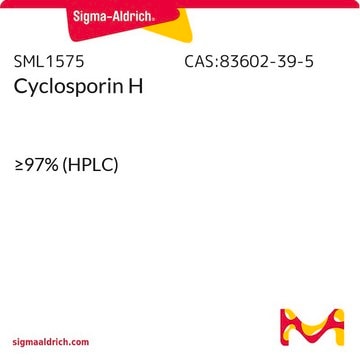SML2587
AQ1 trifluoroacetic acid salt
≥98% (HPLC)
Synonym(s):
2,2′-(9,10-dihydro-9,10-dioxo-1,5-anthracenediyl)bis[L-lysyl-β-alaninamide trifluoroacetic acid
Sign Into View Organizational & Contract Pricing
All Photos(1)
About This Item
Empirical Formula (Hill Notation):
C32H44N8O6 · xC2HF3O2
CAS Number:
Molecular Weight:
636.74 (free base basis)
UNSPSC Code:
12352106
NACRES:
NA.77
Recommended Products
Assay
≥98% (HPLC)
form
powder
color
faint yellow to dark orange
solubility
H2O: 2 mg/mL, clear
storage temp.
−20°C
Biochem/physiol Actions
AQ1, an anthraquinone derivative, is a potent stabilizer of c-KIT G-quadruplexes (G4) that downregulates c-KIT mRNA and protein expression in human and canine cell lines. Also, AQ1 causes inhibition BCL2 gene expression in HGC27 and MCF7 cells. AQ1 inhibits proliferation of in varies human tumor cell lines including HCG27, MCF7 and imatinib resistant HMC1.2 cells.
potent stabilizer of c-KIT G-quadruplexes (G4) that downregulates c-KIT mRNA and protein expression; KIT transcriptional down-regulator
Storage Class Code
13 - Non Combustible Solids
WGK
WGK 3
Flash Point(F)
Not applicable
Flash Point(C)
Not applicable
Choose from one of the most recent versions:
Certificates of Analysis (COA)
Lot/Batch Number
It looks like we've run into a problem, but you can still download Certificates of Analysis from our Documents section.
If you need assistance, please contact Customer Support
Already Own This Product?
Find documentation for the products that you have recently purchased in the Document Library.
Giuseppe Zagotto et al.
Bioconjugate chemistry, 22(10), 2126-2135 (2011-09-13)
Anthraquinone is a versatile scaffold to provide effective DNA binders. This planar system can be easily conjugated to protonable side chains: the nature of the lateral groups and their positions around the tricyclic moiety largely affect the DNA recognition process
Eleonora Zorzan et al.
The Journal of pharmacology and experimental therapeutics, 367(3), 461-472 (2018-10-03)
G-quadruplexes (G4) are nucleic acid secondary structures frequently assumed by G-rich sequences located mostly at telomeres and proto-oncogenes promoters. Recently, we identified, in canine KIT (v-kit Hardy-Zuckerman 4 feline sarcoma viral oncogene homolog) promoter, two G-rich sequences able to fold
Eleonora Zorzan et al.
Oncotarget, 7(16), 21658-21675 (2016-03-05)
Stabilization of G-quadruplex (G4) structures in promoters is a novel promising strategy to regulate gene expression at transcriptional and translational levels. c-KIT proto-oncogene encodes for a tyrosine kinase receptor. It is involved in several physiological processes, but it is also
Our team of scientists has experience in all areas of research including Life Science, Material Science, Chemical Synthesis, Chromatography, Analytical and many others.
Contact Technical Service
